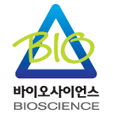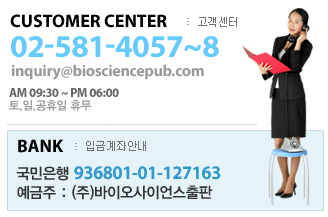 |
|
|
|
|
|
상호 : (주)바이오사이언스출판|본사: 경기도 파주시 탄현면 국화향길 10-56, 1동 |서울사무소: 서울특별시 서초구 도구로 115, 1층
사업자등록번호 : 114-86-69898 (정보확인)|
통신판매업신고 : 2020-경기파주-0840|
부가통신사업자번호 :
대표이사 : 문정구|
개인정보 관리책임자 : 장부례|
개인정보 보호기간 : 회원탈퇴시
Copyrightⓒ (주)바이오사이언스출판 All rights reserved. Designed by wepas.com
|
|
|

|
|
|




